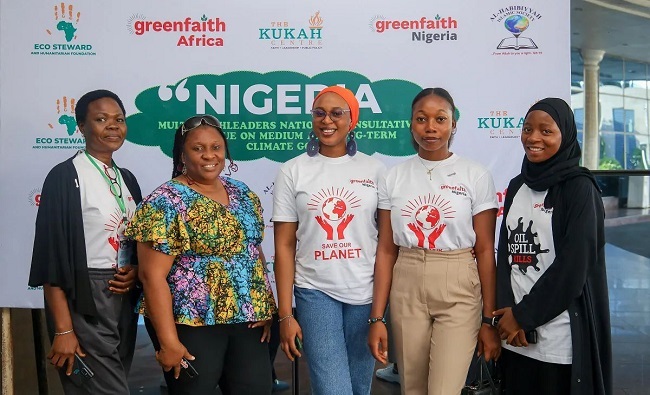In commemoration of 2025 International Women’s Day, the Ecosteward and Humanitarian Foundation (EHF) has relaunched its unwavering opposition to the social, political, environmental, sexual, and socioeconomic oppression that women experience globally.

These repressive institutions are interconnected, according to the environmental rights non-profit, and its mission is to support concerted efforts to abolish their interconnection in order to address the various injustices that women face and advance their basic human rights.
Idiang Magdalene, EHF’s gender justice specialist, highlighted women’s roles as frontline climate solution providers in their own communities, whether as farmers, scientists, activists, or policymakers.
However, he bemoaned that systemic hurdles such as insufficient finance, exclusion from policymaking processes, and patriarchal sociopolitical institutions continue to undermine these roles.
This problem, he added, exposes millions of women to climatic dangers, warning that unless quick action is taken, the crisis will not only exacerbate poverty and instability but will also erode hard-won advances in gender equality.
Speaking about his work in Africa, the gender justice expert explained how he has witnessed the ecological and climate crises, to which women have contributed the least, disproportionately affecting them.
He continued by saying that these women still advocate and implement alternative models of production, community relations, and interdependence with nature in spite of the obstacles.
These living alternatives, as seen in how women produce, exchange, care for, and regenerate natural resources, “are the backbone of sustainable futures, offering a stark contrast to the destructive extractive’ model,” Magdalene stated in a press release made available to EnviroNews by EHF on Friday, March 7, 2025.
In the same vein, Margaret Bartholomew, another EHF team member, while also underlining how pivotal these roles are to advancing environmental protection, acknowledged women as leaders in sustainability, who are driving innovative solutions in agriculture, energy, and policy.
“Women are leading decentralised, community-controlled renewable energy projects that offer a path toward a fossil fuel-free future,” she said.
According to her, this year’s IWD theme, “Accelerate Actions,” is a clarion call to promote women’s rights and provide them with access to land, credit, seeds, and agricultural tools as one of the quickest ways to reduce hunger, because when women farmers are supported, entire communities thrive, children are educated, and rural development is fast-tracked.
Francisca Edeh wants women’s rights, capacity building, and digital inclusion to be given priority so they can fight misinformation and make their voices heard.
Like the other speakers, she sees the celebration’s theme as a rallying cry to increase women’s leadership in climate action and make gender-responsive financing for climate programmes a priority in Nigeria and other African countries.
“Women-led projects require adequate funding and institutional support, with women’s voices placed at the centre of climate decision-making – not relegated to the margins,” Edeh canvassed.
EHF’s work is sustained by great love and solidarity, which allows the organisation to continue fighting, destroy oppressive systems, and create a new world in which women lead the battle for justice, equality, and sustainability.
By Etta Michael Bisong, Abuja
